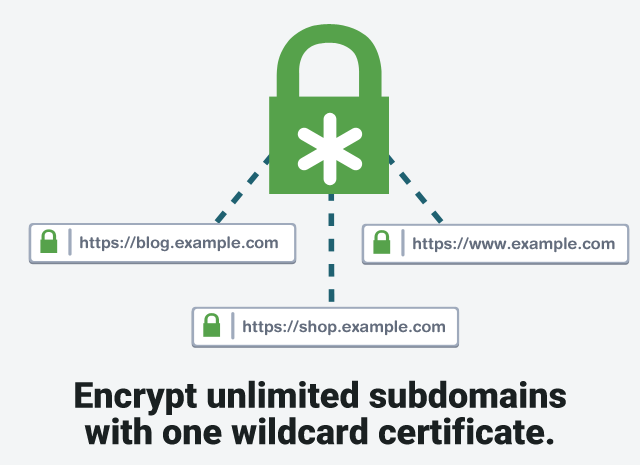
A Certificate Authority (CA) can be defined as a third-party trusted by the public that issuing digital certificates. These certificates can verify the identity of an organization in online interactions. These certificates are essential to encrypting all data sent over an Internet connection.
What is a Certificate Authority (CA)?
A CA can be a company, organization or other entity that is authorized to issue SSL/TLS as well as other certificates by browsers. They are audited annually by third-parties to ensure they comply the policies and procedures of certificate issuance, validation and revocation.
How can certificate authorities improve public trust?
The main goal of a CA, in the end is to improve public trust through increasing the credibility of a site. Like the DMV issuing an official ID card, certificate authorities vouch for an organization's legitimacy by digitally signing certificates that prove it's legitimate.

What is Certificate Authority Chains?
In cybersecurity, the certificate authority chain is a set of one or more intermediate certificates that connects the ultimate end-user with the root CA. This chain of certificates is an important part of the security of internet connections because it protects against spoofing and cyberattacks that steal information from end-users by pretending to be a legitimate web site or service.
The chain of trust is critical in securing internet connections because it relies on the ability to verify that an organization's identity has been validated. This is achieved through a process called domain validation, which involves a series of verification steps.
What is the difference between a CA (Certified Accreditation) and a CERT (Certified Ethical Retailer)?
A certificate agency is an organization which issues certificates and manages credentials, public keys and public keys for data encryption. Its primary duty is to ensure the end-user receives an unique certificate for efficient identification authentication.
What is the difference in a certificate authority that issues certificates for public or private?
A public certificate authority (PCA) is an organization trusted by all browsers and recognized as independent. It is responsible to ensure that websites it certifies meet the Baseline Specifications set by CA/B Forum - a nonprofit consortium of internet browsers.

What are the differences in ssl certificates authority and trusted certificate authorities?
A ssl Certificate Authority is an organization which issues TLS/SSL certifications to sites that wish to protect user privacy. These organizations do this by providing an encryption layer to the communication that takes place between their servers, your browser, and any other third party.
What is a CERT (Certificate of Recognition)?
A Certificate Authority (CA) is a third-party trusted by the user that manages public keys, credentials and issues certificates. Its main responsibility is to ensure that the end-user get a unique certificate for efficient identity authentication.
Why are certificate authorities valuable?
They are critical to the security of the Internet and provide an essential stumbling block for hackers. In the absence of these certificates, it would not be possible to authenticate websites to third parties and to verify their authenticity for email clients or operating systems. Also, they are essential in maintaining public-key infrastructure and Internet Security as a whole.
FAQ
What is a static website?
A static website is a site where all content are stored on a server, and visitors can access it via web browsers.
The term "static" is used to refer to the absence of dynamic features like changing images, video, animations, etc.
This type of site was originally developed for use in corporate intranets but has since been adopted by individuals and small businesses who want simple websites without the complexity of custom programming.
Because they are easier to maintain, static sites have been growing in popularity. Static sites are easier to maintain and update than fully-featured websites with multiple components (such as blogs).
They also load more quickly than dynamic counterparts. This makes them perfect for users who are using mobile devices or have slow Internet access.
In addition, static sites are more secure than their dynamic equivalents. You can't hack into a static site. Hackers have limited access to data within a database.
Two main methods can be used to create a static site:
-
A Content Management System (CMS),
-
Create a static HTML website
It all depends on what you need. If you're new to creating websites, I recommend using a CMS.
Why? Because it gives you complete control over your website. A CMS eliminates the need for a professional to set up your site. Upload files directly to the CMS.
Still, you can learn to code and create static websites. You will need to spend some time learning to program.
Do I use WordPress?
Start small to create a strong web presence. If you have the time and resources to build a full-blown site, then do so. If you don't have the resources to build a full-fledged site, a blog may be the best choice. As you learn how websites are designed and developed, you can always add more features.
It is essential that you have a primary domain name before you can start your first website. This will give you something to point to when you publish content.
What Kinds Of Websites Should I Make?
It all depends on what your goals are. To build a business around your website, you may want to focus on selling products online. This will require you to set up a strong eCommerce site.
Blogs, portfolios, as well as forums are some other popular web types. Each of these requires different skills and tools. To set up a blog for instance, you'll need to learn about blogging platforms like Blogger and WordPress.
When you choose a platform, you will also need to figure out how to customize the look of your site. There are many templates and themes that are free for each platform.
Once you have selected a platform you can add content to your website. Your pages can be filled with images, videos and text.
It is now possible to publish your new website online. Your site is now available for visitors to view in their browsers.
Where Can I Find Freelance Web Developers?
You can find freelance web designers and developers in several places. Here are some of our top choices:
Freelance Websites
These websites offer job listings for freelancers. Some require you to do specific work, while others are open to all types of work.
Elance, for example, offers high-quality jobs as programmers, graphic designers, translators and editors, project managers and many other positions.
oDesk also offers similar features, but focuses more on software development. They offer jobs in PHP, Perl, Java, C++, Python, JavaScript, Ruby, iOS, Android, and.NET developers.
Another good option is oWOW. Their website focuses on web and graphic designers. They offer writing, video editing and programming as well as SEO, social media marketing, website design, and many other services.
Online forums
Many forums let members advertise and post jobs. DeviantArt is a forum for web developers. A list of threads will appear if you type "web developer” in the search box.
Statistics
- At this point, it's important to note that just because a web trend is current, it doesn't mean it's necessarily right for you.48% of people cite design as the most important factor of a website, (websitebuilderexpert.com)
- Did you know videos can boost organic search traffic to your website by 157%? (wix.com)
- It enables you to sell your music directly on your website and keep 100% of the profits. (wix.com)
- It's estimated that chatbots could reduce this by 30%. Gone are the days when chatbots were mere gimmicks – now, they're becoming ever more essential to customer-facing services. (websitebuilderexpert.com)
- It's estimated that in 2022, over 2.14 billion people will purchase goods and services online. (wix.com)
External Links
How To
How do I choose between CMSs?
Two types of Content Management System are available. Web Designers typically use static HTML and dynamic CMS. The most popular CMS is WordPress. Joomla! is an excellent CMS for making your site professional and well-organized. Joomla! is an open-source CMS that allows you to create any type of website design. It's simple to install and configure. You don't need to hire a developer to set up your site because Joomla comes with thousands of ready-made templates and extensions. Joomla is also free to download and install. Joomla can be used for many purposes.
Joomla is an excellent tool for managing all aspects of your website. It provides features such as a drag & drop editor, multiple template support, image manager, blog management, a news feed, eCommerce, etc. Joomla is an ideal choice for anyone wanting to build a website, without needing to know how to code.
Joomla supports nearly all devices. This is a great feature. Joomla makes it easy to create websites for different platforms.
There are many reasons that Joomla is preferable to WordPress. There are many reasons why Joomla is preferred over WordPress.
-
Joomla is Open Source Software
-
Easy to Install and Configure
-
You will find thousands of ready-made extensions and templates
-
Free to Download and Use
-
Supports Almost All Devices
-
Amazing Features
-
Excellent Support Community
-
Very secure
-
Flexible
-
Highly customizable
-
Multi-Lingual
-
SEO Friendly
-
Responsive
-
Social Media Integration
-
Mobile Optimized